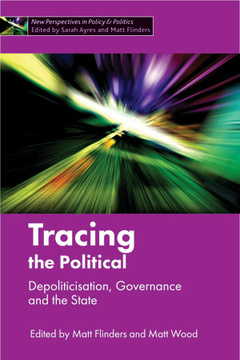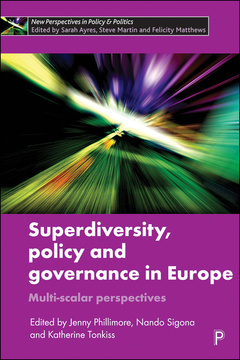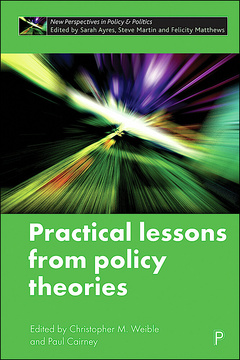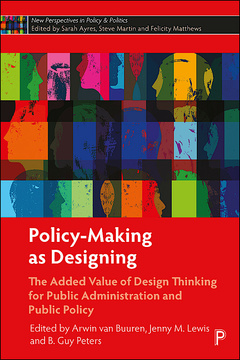How Does Collaborative Governance Scale?
Edited by Chris Ansell and Jacob Torfing
ISBN
978-1447340553Dimensions
234 x 156 mmImprint
Policy PressISBN
978-1447340577Imprint
Policy PressISBN
978-1447340584Imprint
Policy PressScale is an overlooked issue in the research on interactive governance. This book takes up the important task of investigating the scalar dimensions of collaborative governance in networks, partnerships, and other interactive arenas and explores the challenges of operating at a single scale, across or at multiple scales and of moving between scales.
First published as a special issue of Policy & Politics, the volume explores the role of scale and scaling in a wide range of policy areas, including employment policy, water management, transportation planning, public health, university governance, artistic markets, child welfare and humanitarian relief. Cases are drawn from Asia, Australia, Europe, and North and South America and span all levels from local to global. Together, the theoretical framework and the empirical case studies sensitize us to the tensions that arise between scales of governance and to the challenges of shifting from one scale of governance to another.
"This volume offers an unparalleled examination of the issues of scale and scaling in collaborative governance. The theoretical framework and case study illustrations provide invaluable insights to both scholars and practitioners. It is a must-read for anyone wishing to better understand and better engage in effective collaborative problem-solving." Tina Nabatchi, Associate Professor, Maxwell School of Citizenship and Public Affairs, Syracuse University
Professor Chris Ansell works in the Department of Political Science at University of California, Berkeley. His fields of interest include public policy, public administration, governance, and organization theory, with a geographical focus on Europe. His current research focuses on the collaboration of public and private institutions to manage risks and to govern unruly public problems.
Professor Jacob Torfing, Department of Social Sciences and Business, Roskilde University. His research interests include changing forms of governance, public sector reforms, political leadership and the barriers and drivers of collaborative innovation.
How does collaborative governance scale? ~ Chris Ansell and Jacob Torfing
Governing EU employment policy: does collaborative governance scale up? ~ Eva Sørensen, Peter Triantafillou and Bodil Damgaard
Bridging the hierarchical and collaborative divide: the role of network managers in scaling up a network approach to water governance in California ~ Esther Conrad
Scale and intensity of collaboration as determinants of performance management gaps in polycentric governance networks: evidence from a national survey of metropolitan planning organisations ~ Asim Zia, Christopher Koliba, Jack Meek and Anna Schulz
When collaborative governance scales up: lessons from global public health about compound collaboration ~ Chris Ansell;
The 'Milky Way' of intermediary organisations: a transnational field of university governance ~ Kerstin Sahlin, Filip Wijkström, Lisa Dellmuth, Torbjörn Einarsson amd Achim Oberg
Scaling up networks for starving artists ~ Ben Farr-Wharton and Robyn Keast
Shifts in control disciplines and rescaling as a response to network governance failure: the BCJ case, Brazil ~ Charles Kirschbaum
Institutional embeddedness and the scaling-up of collaboration and social innovation: the case of a Hong Kong-based international NGO ~ Eliza WY Lee and Juan Manuel Restrepo

















